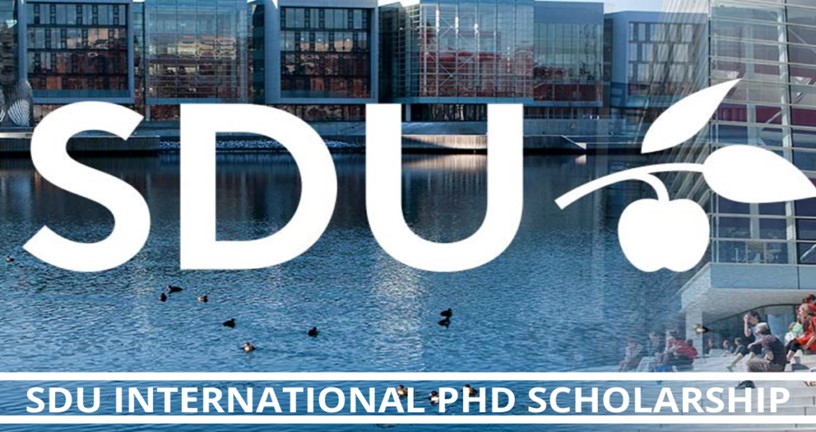The University of Southern Denmark (Danish: Syddansk Universitet, lit. ’South Danish University’, abbr. SDU) is a university in Denmark that has campuses located in Southern Denmark and on Zealand.
The University of Southern Denmark was established in 1998 when Odense University, the Southern Denmark School of Business and Engineering, and the South Jutland University Centre were merged. The University Library of Southern Denmark was also merged with the university in 1998. As the original Odense University was established in 1966, the University of Southern Denmark celebrated its 50-year anniversary on September 15, 2016.
The university offers a number of joint programs in cooperation with the University of Flensburg and the University of Kiel. Contacts with regional industries and the international scientific community are strong.
With its 29,674 enrolled students (as of 2016), the university is both the third-largest and, given its roots in Odense University, the third-oldest Danish university (fourth if one includes the Technical University of Denmark). Since the introduction of the ranking systems in 2012, the University of Southern Denmark has been ranked between 36th (2012), 38th (2013), 37th (2014), and 44th (2015) in the world by the Times Higher Education World University Rankings in the Top 100 Universities Under 50 List. It is also one of the Top 50 Universities Under 50 according to QS World University Rankings from 2012-2015.
At the Department of Law, the University of Southern Denmark, 1-2 PhD fellowships in EU law will be available as of 1 January 2024, or by further agreement. The place of work will be SDU Campus Odense.
The responsibilities of the PhD fellows at the Department of Law for this call include the following tasks:
- Writing a PhD thesis on EU law, taking account of the case law of the Court of Justice of the European Union (CJEU) linked to the job description and research project below.
- Undertake some teaching within the context of the fellowship.
- Supervise bachelor’s and master’s students for their theses.
- Take part in various knowledge exchange activities both inside and outside the university.
- Build relations with and cooperate with external stakeholders.
- Undertake administrative tasks related to research and teaching.
The PhD position(s) principally involves research obligations. The position is aimed at candidates who will be able to contribute to the research of the department, with an emphasis on conducting a PhD thesis in EU law, focusing on the case law of the Court of Justice of the European Union (CJEU).
Location:
DenmarkBenefits
- Get a salaried PhD education.
- Gain teaching experience since part of the program involves teaching certain courses.
- Learn to produce and disseminate new knowledge.
- Learn to structure the working day and achieve the goals that have been set.
- Have a change of research environment at a recognized university abroad.
- Attend conferences and PhD courses with other PhD students.
- Be part of an excellent research environment with talented and experienced researchers
- Have about 60 congenial and interesting colleagues – and the opportunity to build my own network in both Danish and international legal research environments.
Eligibilities
- Applicants should hold a cand. jur (LL.M.), cand.merc.jur, or other form of postgraduate legal education. If candidates have not completed their legal education yet, they should be able to demonstrate proof of being about to complete it.
- Records of any published research prior to the application may be regarded as an advantage, and experience outside of legal research may be considered relevant for candidates’ applications.
Application Process
When applying for this position, it is mandatory to attach the following:
- Motivated application letter.
- Curriculum vitae.
- Certificates/diplomas including all results (Masters degree, Bachelors degree, etc.).
- List of publications (if any).
- A project description, containing information concerning the research planned within the scope of the application, linked to the CJEU and EU law (max 5 pages of 2400 characters each, including spaces, notes, appendices, bibliography, etc.).
- An abstract for the above project description of no more than 250 words.
- Up to three academic publications (if any). Please attach a pdf file for each publication. If there are co-authors on a publication, a co-author declaration must be attached in the relevant pdf file, stating the applicant’s contribution to the publication.
Application Deadline: January 1, 2024
Application ClosedOfficial link

















